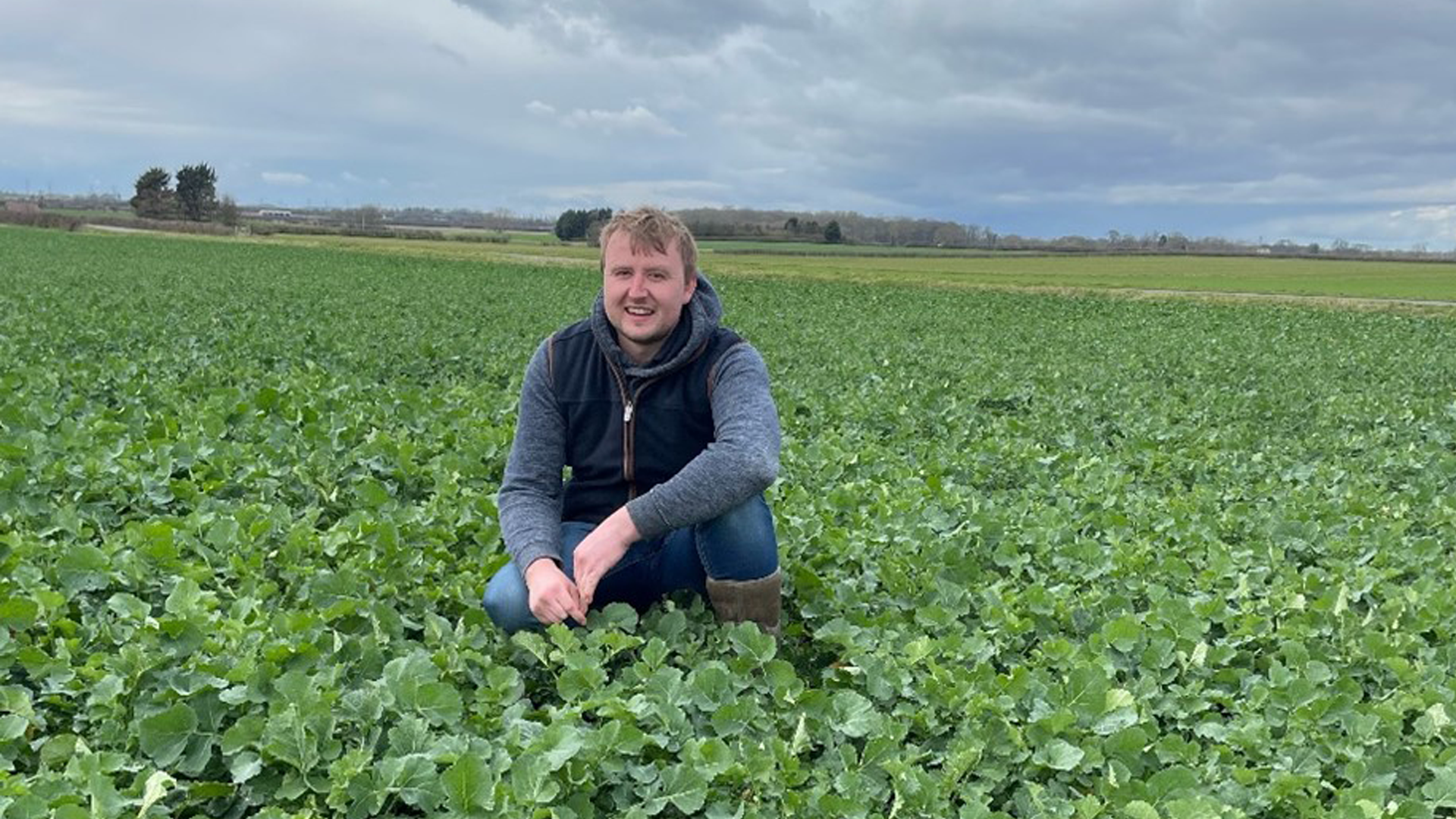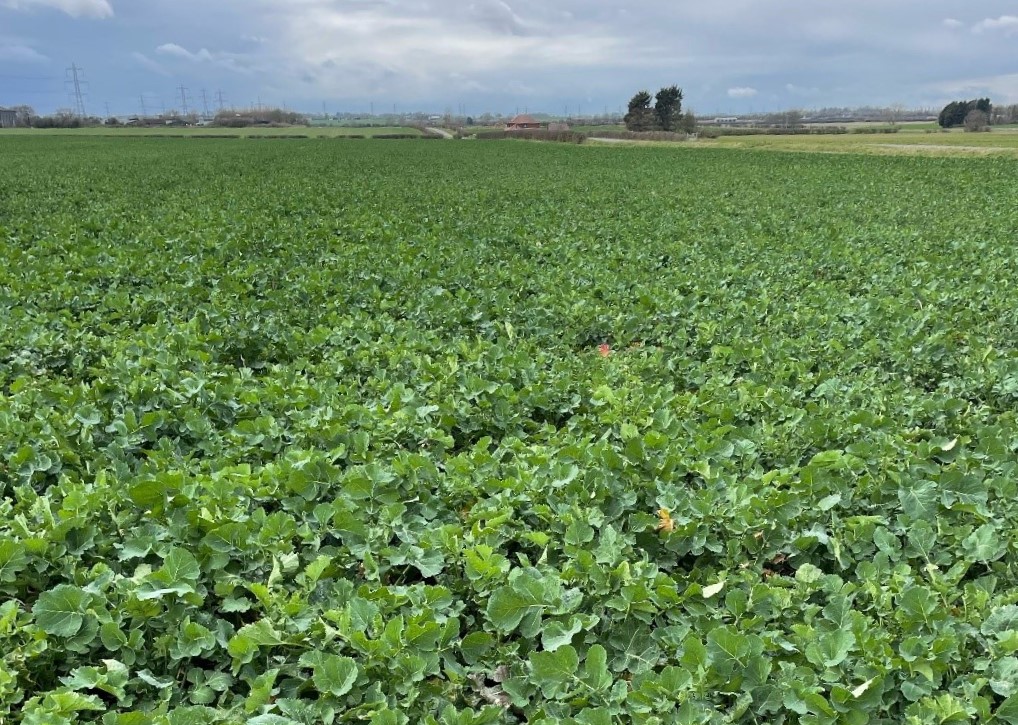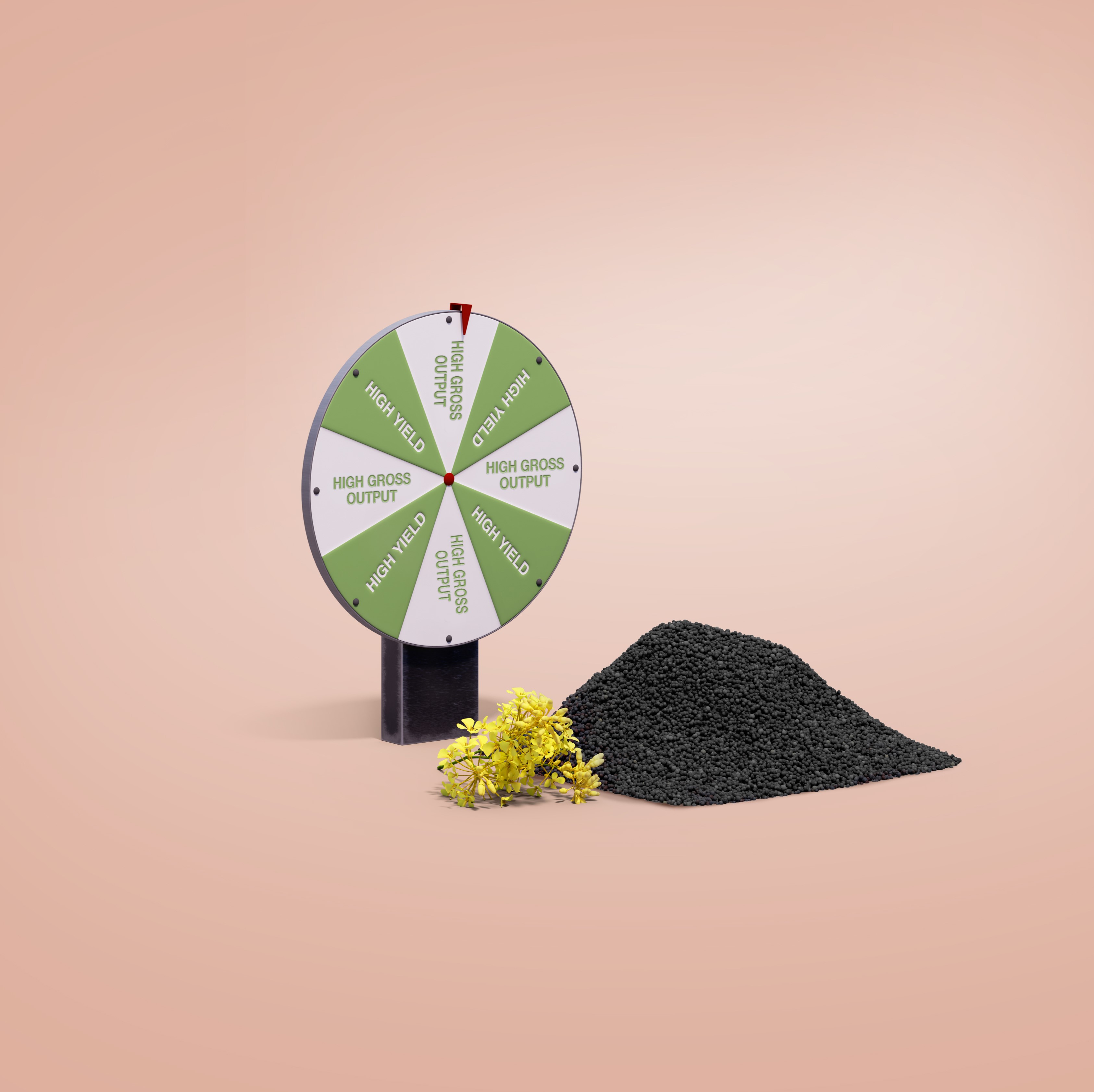KWS hybrid OSR KWS Granos makes a great start in Lincolnshire
While many farms have reduced their oilseed rape production or stopped it entirely, A. W. Turner & Son have done the exact opposite at their Church Farm, East Halton near Grimsby, with a 50% increase in area of the crop over the last three years.
“Oilseed rape has always been a good break crop for us because our land is too heavy for roots and we grow vining peas, so beans are not an option," says Jonathan, who works alongside his father, Graham.
"Another big factor is that the crop goes directly from our combine to F. S. Storage at Elsham, 10 miles away, making the most of the limited storage that we have on the farm.”
Their 202ha includes 49ha of grass, two-thirds being permanent pasture, and 16ha into silage leys which help to keep blackgrass under control.
The father and son team also have 153ha of arable, comprising 69ha of winter wheat, all feed varieties, and 20ha of winter barley.
Some 20ha of spring malting barley, 10ha of vining peas and 36ha of oilseed rape complete their cropping, he explains.
“Normally we grow two varieties of oilseed rape, one a conventional type for early drilling and a hybrid for later sowing because of its added vigour."
"In 2020/21 we had LG Aspire, a conventional variety, and LG Aurelia, a hybrid, but lost about 16ha of that due to a combination of dry weather after drilling and cabbage stem flea beetle."
“Our land is quite heavy and prone to cracking, so it is not always possible to achieve the very uniform seedbeds that others on more forgiving soils are able to do."
"We used the recommended seed rate, but it seemed to me that one of the reasons why it failed was simply that there weren’t enough seeds. The crop was slow to get away, always looked thin and when cabbage stem flea beetle arrived it could not compete."
"We went for KWS Granos this year on the recommendation of Lucy Jackson, Area Manager for United Oilseeds based on its reputation for rapid establishment, knowing that it would be drilled late following spring barley."
"We also wanted a variety with good resistance to pod shatter and Light Leaf Spot."
KWS Granos is one of the first varieties to be produced from our new hybrid breeding programme which provides KWS plant breeders with much greater speed and flexibility than was possible with our previous conventional approaches.
High performance with excellent disease resistance
According to KWS Oilseed and Special Crops Manager Kate Cobbold, KWS Granos delivered a high gross output yield of 105% of control for the UK and 105% for East/West plus an oil content of 45.5% in 2022 AHDB Recommend List trials.
"KWS Granos is one of the first varieties to be produced from our new hybrid breeding programme which provides KWS plant breeders with much greater speed and flexibility than was possible with our previous conventional approaches."
"Hybrid breeding offers many advantages, including the possibility of creating a new variety stacked with multiple traits in five years, which is much quicker than with conventional breeding."
"A case in point is the work which the company’s plant breeders are doing to improve the resistance and tolerance of these new-generation varieties to cabbage stem flea beetle."
"Including all the ‘bolt on’ traits which innovative farmers expect and noted for its very high gross output, KWS Granos is a short-strawed hybrid which exhibits very vigorous autumn growth and excellent standing, scoring 8 for stem stiffness and resistance to lodging."
The variety is also characterised by its strong disease package, she explains.
"This includes good resistance to Light Leaf Spot at 7 and tolerance to Turnip Yellows Virus (TuYV), probably the most important, yet least understood, viral disease of oilseed rape in the UK."
"With medium flowering at 7 and maturity at 6, KWS Granos has the PoSh gene and in the KWS verticillium pot test carried out by ADAS, had outstanding performance with its rating of 5 for verticillium leaf stripe, better than all the current standards."
Jonathan Turner says the variety emerged very quickly and never looked back, quickly catching some LG Acacia which had been drilled three weeks earlier.
"We were concerned that being late sown it would be large enough going into winter and able to resist pigeon damage the crop came into spring unscathed."
Cabbage stem flea beetle has not been a problem either, he adds.
“Moisture holds the key. If the crop is sown into moist soil and gets going quickly it can outgrow the damage caused by cabbage stem flea beetle and go on to produce good results."
"Last season they caused little damage and we managed to get by with just one insecticide. This season they have been more active, and we saw quite a lot of grazing damage in early autumn."
"Big crops going into winter often get hit hard during the spring by beetle larvae in the stems, but by the beginning of March there was little sign of trouble, the crop being in great shape and full of promise."
"Having received two insecticides and 50kgN/ha in granular form it had put on a lot of growth in the previous two weeks as it took up the nitrogen and was powering away."
"We're very pleased with what we have seen of KWS Granos so far."
KWS Granos management and agronomy
Church Farm, East Halton, is on the receiving end of weather which locks on to the mouth of the River Humber and follows it upstream, so conditions can be very changeable, Jonathan says.
“In 2022, after a long very dry period which started in the spring and last throughout the summer, we had 30mm of rain at the end of August."
"The field earmarked for KWS Granos had one pass with a Simba Express, the five leading tines set 200mm deep, and the crop was drilled into medium loam and a moist seedbed on 2 September with our Amazone AD-P 303."
"Alternate coulters were removed to give 25cm row spacing and the others were set in the float position to sow 10mm deep. The seed was covered over by the following harrow and the field immediately rolled to help conserve moisture.”
Jonathan admits he is not a fan of using pre-emergence herbicides and likes the crop to be well established before applying a herbicide.
"Oilseed rape is an expensive crop to grow and the costs are front-loaded, so before making any additional investment we want it to prove that the potential is there to justify it."
By the beginning of March the KWS Granos had received one application of Centurion MAX, a systemic, selective, non-residual herbicide for the post-emergence control of annual and grass weeds in oilseed rape.
Astrokerb®, a contact and residual herbicide delivering control of blackgrass, poppy, mayweed and other grass and broad-leaved weeds in winter oilseed rape, was also applied.
Going forward, it will receive fertiliser up to 200kgN/ha, plus a comprehensive agrochemical programme designed to maximise the crop’s performance throughout the season, he says.


